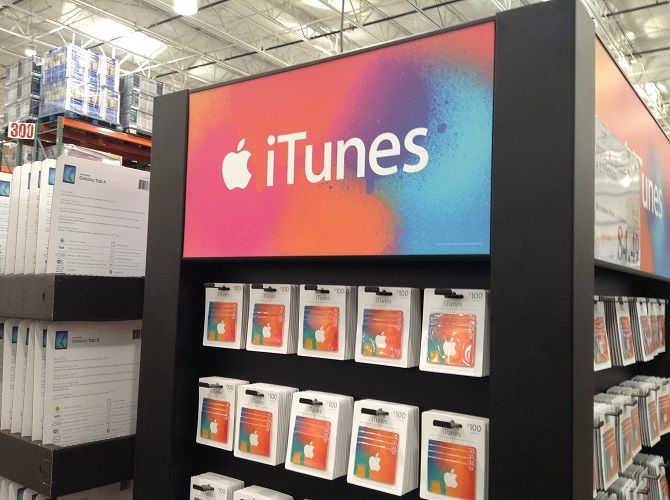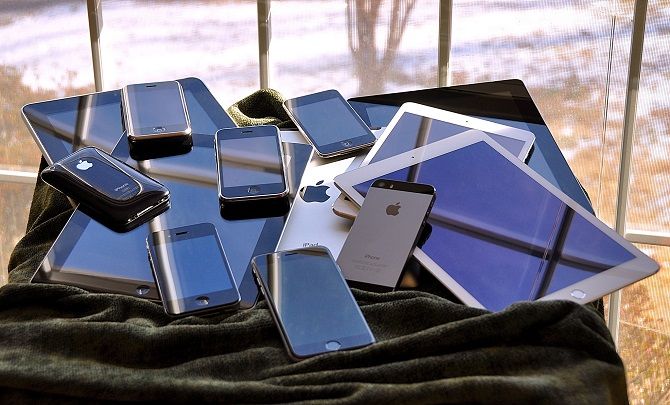Police are warning people across America and Europe about a new scam that tricks you or your loved ones into buying Apple gift cards.
And what's worse, if you fall for it, it's incredibly likely that you won't get your money back.
So what does it entail? How can you avoid it? And should you really be concerned?
What's the Scam?
It's a very simple scam -- so simple, in fact, you might find it bizarre that people are actually falling for it. Nonetheless, you shouldn't immediately scoff. Stick with us because it's worth knowing about.
It might not trouble you specifically, but it's affecting many who don't necessarily know much about iTunes.
There is a history of fraudsters using them for purposes of money-laundering, but recently this has grown into a scam that scares legions of victims into purchasing these cards.
A criminal contacts you claiming to be a representative from a governmental department or company, like those saying they are Window Tech Support. They do this by either cold calling (typically using spoofed phone numbers so anyone with call recognition might still be fooled), using voicemail and leaving automated messages, or sending SMS.
Victims are warned, in all three cases, that they need to urgently return the call or risk further penalty.
In the U.K., scammers often pretend to be HMRC, but other variations persist. Notably, fraudsters in America purport to be ringing in regards to additional fees for services including insurance cover, shipping, or any other unpaid debt.
Victims are then informed that the quickest and easiest way to pay fees (before more interest is added) is by purchasing iTunes gift cards. Once they've done this, all they have to do is give the criminal the 16-digit code revealed underneath the peel-off label on the back.
Once that's done, there's no going back. Your money is gone -- except when you're swift enough to realize what's happened.
Wait, How Are People Fooled by This?
Thousands of Apple gift cards are purchased worldwide, either for ourselves (instead of using money on a credit or debit card) or as presents, for when you don't know exactly what to buy someone or if the recipient is constantly glued to their smartphone. They work in pretty much the same way as other gift cards: you simply load them with money and, using the code revealed on its reverse, you can buy music or apps using it.
But that doesn't mean everyone knows the specifics of iTunes.
An older generation, for example, might be unfamiliar with how they work. Indeed, some call this a "grandparent scam" as some con artists trick their victims into thinking they're helping a family member in financial trouble. It was even claimed, in one instance, as bail money!
Of course, the vast majority of scams play on such worries. Common sense can disappear when faced with the prospect of police or debt-recovery involvement (and that's what criminals are threatening, should supposed charges not be paid).
And there is a way even the relatively tech-savvy could be fooled into purchasing gift cards.
Fraudsters have altered their approach, claiming that gift cards are a way of using Apple Pay. As that's a comparatively new feature, and not one used by the masses just yet, some think this is feasible, especially those who don't want to use Apple Pay for fear it's a security risk.
An incredible £15,000 (over $19,000) was lost by one victim, so it's not to be laughed at.
How Can Criminals Benefit From This?
It immediately seems an odd case of fraud -- after all, criminals are just left with loads of codes. Surely no one can spend nearly $20,000 on apps and music for iDevices? Well, no. Criminals have other uses for those digits.
They can simply sell the codes on for a fraction of their retail price. Few would turn down the chance to get a $100 iTunes code, albeit without the actual gift card, for the price of $50 or even $75. Naturally, however much cash a con artist can get is pure profit.
Offers might be made on the internet generally, such as through auction sites or social media (though it's worth pointing out that most of these are genuine and that the likes of eBay do have rigorous checks), or via the Dark Web. This is considered the underbelly of the internet, a place where criminal activity is a day-to-day thing.
The positive thing, for scammers at least, is that they can convert these codes into untraceable currencies very easily (Bitcoin being the most prevalent).
What Can You Do About It?
Knowing about this scam is half the battle. So spread that knowledge! You might not be tricked by such a simple fraud, but there's likely to be a relative, friend, or neighbor who could be fooled.
Let them know that if they're ever asked to pay off fees using a gift card, it's a scam. It doesn't matter if that's an iTunes one or another gift card.
If you think you've been scammed: Contact Apple immediately. The company might be able to cancel the card before funds are drained. Criminals have streamlined the process so you need to be quick. Of course, if it's another gift card (Google Store, for example), you need to contact the respective firm.
If you're a shop assistant: Be aware of this scam and let your peers know about it. It might be worth asking managerial employees to put a sign up about it in the staff room. That way, if a customer is purchasing a suspect amount of cards, you can feel confident about finding out more. You could save someone from being a victim.
For other types of gift card scams and how to spot them, check out this helpful article:
Image Credit: Nikolic Dragoslav via Shutterstock.com




